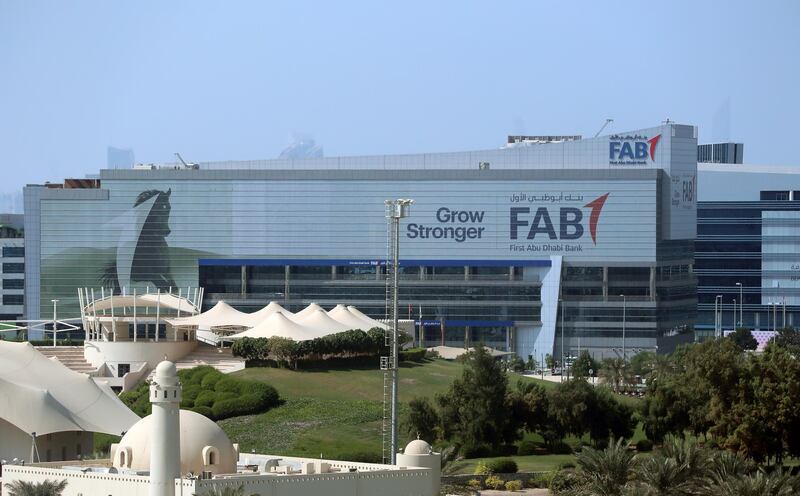The flourishing fees and commission business of banks and financial institutions in the UAE will be hit the hardest with the introduction of value added tax. However, the core business of lending in one of the region's top financial hubs is exempted from the new levy.
While the growth in fee and commission income business – a segment most banks sought to branch out to in recent years amid lower interest rates – may slow down going forward, the scale of the impact will be limited. Banks usually generate only a small part of their overall revenues through this business and the impact on the their bottom lines will be marginal, according to analysts.
The Federal Tax Authority has said products with an explicit fee, commission, rebate or discount would be subject to the regular 5 per cent VAT, while interests on forms of lending including loans, credit cards and finance leasing would be exempt. The authority also said the issue, allotment or transfer of an equity or debt security would be exempt as will be the margin-based products that do not have an explicit fee, commission, rebate or discount.
_____
Read More:
[ No VAT on pre-paid recharge cards from Etisalat ]
[ UAE salaries: VAT set to eat into pay rises, new report says ]
_____
"S&P Global Ratings is of the view that banks will pass on some of the VAT increase to their clients to avoid increasing fees and commissions levied by the full VAT amount," said Mohamed Damak, head of global Islamic finance at S&P Global Rating.
“We also believe banks will incur VAT as part of their general spending. These assumptions lead us to expect a slight negative impact of VAT introduction on banks’ profitability.”
A number of banks contacted declined to comment, citing their inability to speak during the blackout period ahead of their fourth-quarter earnings.
First Abu Dhabi Bank, the biggest bank by assets in the UAE, said in its latest earnings release in October that during the third quarter, net fees and commissions for the nine-months were Dh2.42 billion, about 17 per cent of the lender's total operating income in the period. Meanwhile, Emirates NBD said that in the same period its net fee and commission income was Dh2.19bn, or 19 per cent of its total operating income of Dh11.41bn.
"Banks will absorb the costs," said Jaap Meijer, head of research at Arqaam Capital. VAT would likely account for just one percentage point to the cost-income ratios of banks, he said.
Banks have had a couple of tough years due to an economic slowdown. Their balance sheets, however, have largely recovered from a spike in bad debt in the aftermath of the 2014 oil price crash and provisions for non-performing loans have decreased in recent quarters.
Investment in technology has made banks more cost efficient.
As a result, in the past quarter, there has been a marked improvement in loans and advances, reversing the recent trend, according to the global consultants Alvarez & Marsal.
Loans and advances grew 1.26 per cent in the three months ended September 30, compared with a drop of 0.3 per cent in the second quarter versus the first quarter of the year.
Banks have yet to report fourth-quarter earnings.





